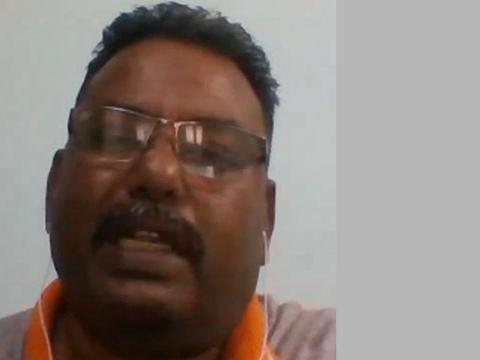No hospital beds, 'acute shortage' of oxygen

I have worked in humanitarian emergencies in India for over 25 years, and I have never seen anything as devastating as what we are experiencing now.
The infection rate is increasing day by day, there is no space in hospitals, there are no beds available. There is an acute shortage of oxygen. Funeral grounds are full in most states. And there is a lack of lifesaving medicines. We are in a race against time to prevent even more people suffering and dying than we are seeing right now.
In the first wave of the pandemic, World Vision reached 4.8 million people with lifesaving aid. Now we are redoubling our efforts to reach more.
We are on the ground, helping secure and distribute oxygen, personal protective equipment, surgical masks, and other lifesaving medical supplies. We are helping vulnerable families access food, strengthening rural health centres, and working together with the government to ensure that people have safe, fast and equitable access to the COVID-19 vaccine.
While we have seen that COVID-19 does not discriminate, it is already becoming clear that the worst impact will be on the most marginalised and vulnerable communities, and particularly on children. Those living in extreme poverty live in cramped spaces, they lack access to sanitation and water. Health clinics are vastly under resourced. All critical in the fight against COVID-19. Our work in these vulnerable communities is helping to address these issues, to try to stem the tide of infection and death.
Alarmingly we are already seeing that this health crisis is contributing to a wider poverty crisis. Many families are struggling to put food on the table. Children are out of school. Parents have lost their jobs, leaving them with no income. We will see the impact of this for years to come.
It is beyond heartbreaking to see this crisis continue to unfold. Every day, people see their loved ones in ambulances, in hospitals, sick in their homes, sometimes dying in front of them. Children are losing their parents, their siblings, their friends. It is unimaginable.
However, I take heart in knowing that that World Vision’s work will save lives. We are one of the largest child-focused NGOs in India, with decades of experience working with vulnerable communities across the country. With your help, we can reach even more people and help bring an end to this devastation.
Franklin Jones is the Head of Humanitarian Emergency Affairs at World Vision India. He is leading the organisation’s response to India’s Covid-19 pandemic.
Originally published by New Zealand Herald.